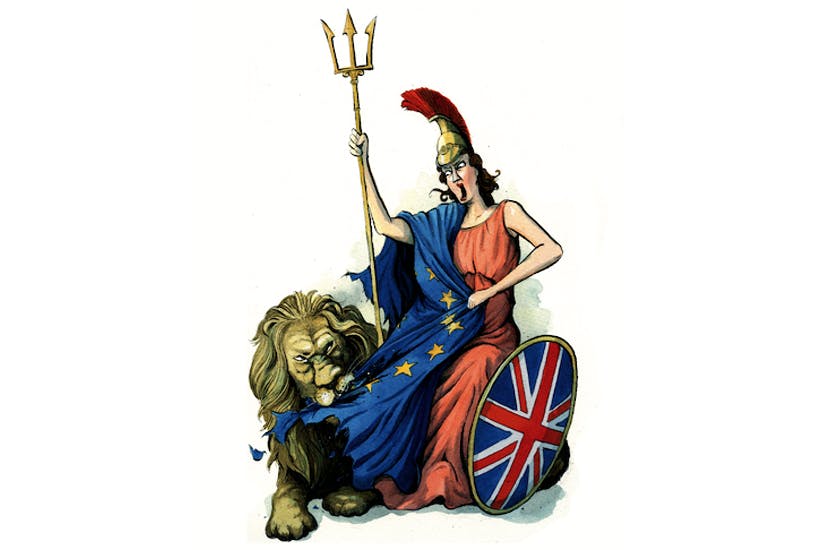Donald Tusk has been ridiculed for suggesting that Brexit marks the end of the British Empire. But he has a point. January 31, 2020 – assuming the date doesn’t move again – should finally bring to a close Britain’s involvement in colonial delusion. And that is exactly why we are right to leave.
Like the British Empire, the European Union is an exercise in patrician rule and one which is sustained by an unshakeable sense of moral and cultural superiority. How better to sum up its pretensions to be more than a mere trade bloc, or even a superstate, than the words of Tusk himself, in an interview with Bild newspaper in 2016: ‘As a historian I fear that Brexit could be the beginning of the destruction of not only the EU but also of western political civilization in its entirety.’
It is more than just a bunch of countries which have banded together for their own mutual interest, in other words: it is a civilization. It is Maya, Babylon, Egypt, Greece or Rome – the source of all that is good and worthwhile in the world, set out to convert others from barbarianism. In the EU mentality there is nothing to be learned from the US, nor from the fast-growing economies of South Asia because it is Europe which has the high ideals. It is fine wine against chlorinated chicken, the social chapter against inhuman corporations.
The difference between modern Europe and earlier civilizations was that whereas they genuinely were the seedbeds of new ideas, it is becoming increasingly hard to sustain the idea that the EU now fulfills that role. Look at where the big technological breakthroughs have occurred in the past two decades: agricultural, medical and engineering innovations and the development of the online world, which has transformed how we do business and spend our leisure time. So many of these breakthroughs can be traced to the US. Where has been the engine of economic growth? China, and the rest of South Asia, excluding Japan. What has the EU given the world over the same period? The first idea which jumps into the head is regulation. While the US has innovated, the EU has regulated – although, as we know from the Volkswagen diesel scandal, it can hardly claim great moral authority in that area, either. If you are looking for things which will be looked upon in future as having changed the world, the fallen Soviet empire, which pioneered space travel, can claim a greater contribution than the EU.
I imagine Donald Tusk aimed his ‘British Empire’ remark at the occupants of residential homes in Bexhill who voted Leave in the hope it would enable the British Empire to be restored. Look at what you have done, he is saying: you have ended up finally destroying the thing you most love. But he has succeeded only in reminding us of the imperialistic delusions which lie behind the EU. We are better off out, among the barbarians, where we can do business and trade with the countries beyond Europe without looking down our nose at them.
This article was originally published on The Spectator’s UK website.



















